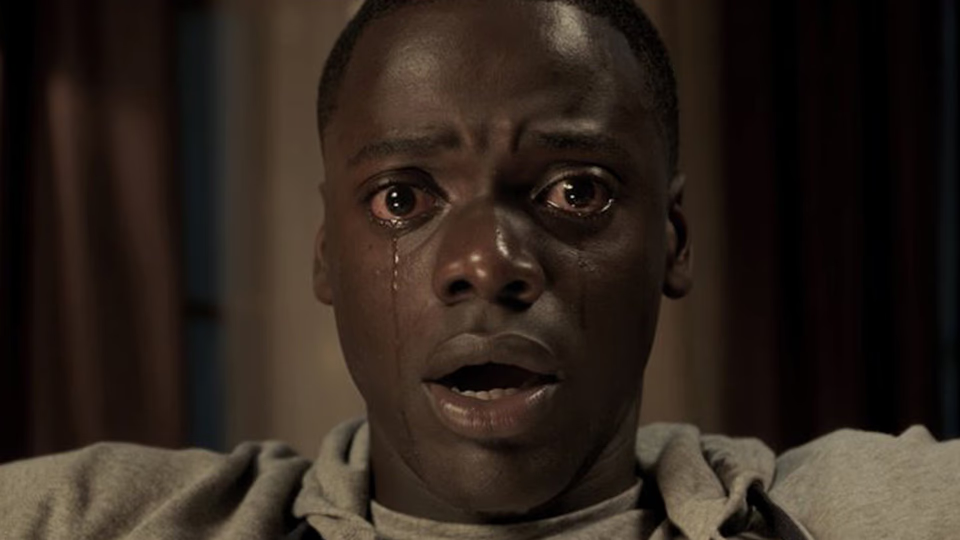Get Out

Daniel Kaluuya stars as Chris, a young photographer. His girlfriend, Rose, played by Allison Williams, takes him home to meet her parents at their remote estate. Chris is apprehensive because Rose hasn’t told her family he’s black. She assures him everything will be fine. Everything is not fine.
Reviewing this one without spoilers will prove difficult. Bear with me. With Get Out, writer/director Jordan Peele offers a horror film that’s a meditation on racism in America, but not how you’d expect. Every time I thought I knew where he was going, Peele surprised me.
Horror films hinge on how they handle the genre tropes. The best filmmakers define, perfect, upend, or avoid them. Peele embraces them.
Allow me to spoil a single scene to make my point. It’s the middle of the night. Chris has endured a rough day with Rose’s family. He’s tired, on edge, and can’t sleep. He sneaks out for a cigarette. Outside he sees—
I changed my mind. I can’t spoil the scene; it’s too good. But consider how Peele embraces the trope of drawing the protagonist into a spooky situation. Chris doesn’t investigate an odd noise, or similar clunky idiot plot behavior. His motives feel organic. What he sees proves scary, bizarre and humorous all at once. Peele leverages the setup’s inherent suspense and channels it into an original payoff. It’s genre Aikido.
Indeed, aside from Rose’s brother’s part feeling underwritten, the film shines. It’s not until the third act, when the film’s cards are on the table, that it falters. By now, we’ve grown so enamored with Peele’s ability to repurpose the genre’s staples that it disappoints when he indulges in a few.
On this point, I’m torn. I love the third act’s gory, inane, over-the-top nature, but it feels like a safety net. Like a comedian following a raw emotional truth with a punchline. The finale plays well, but Peele earned a grittier, more resonant ending.